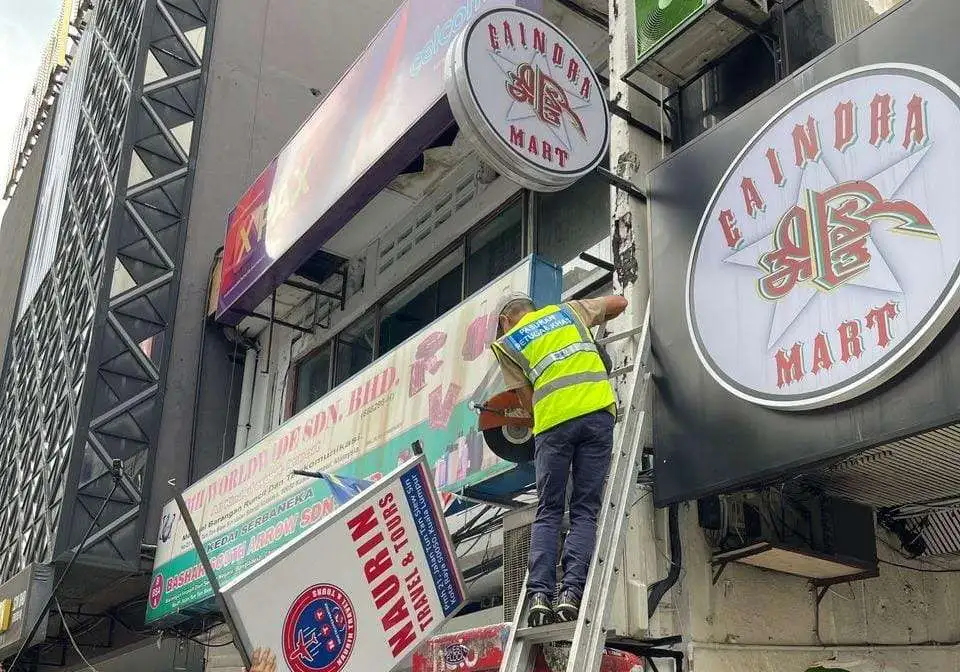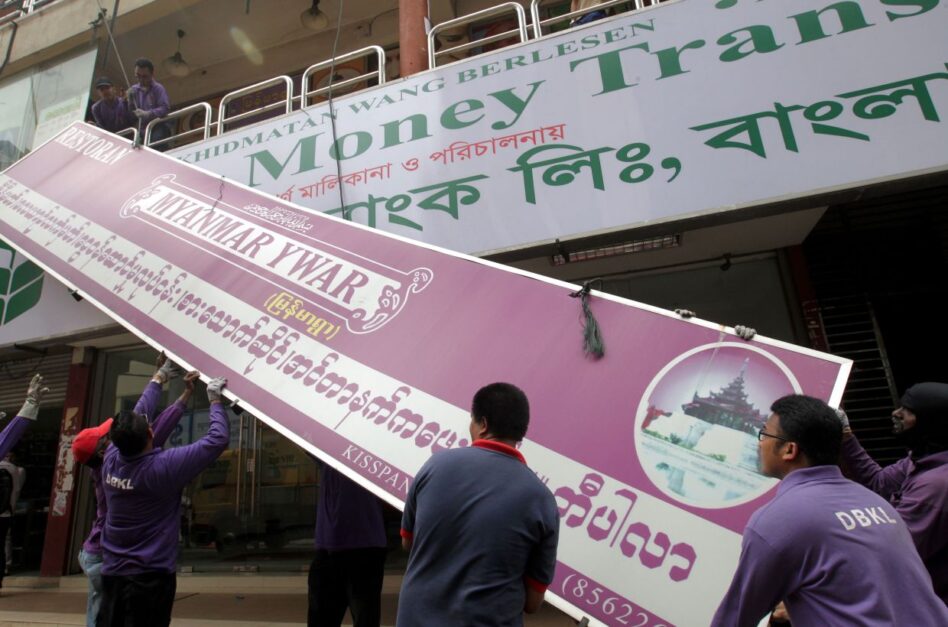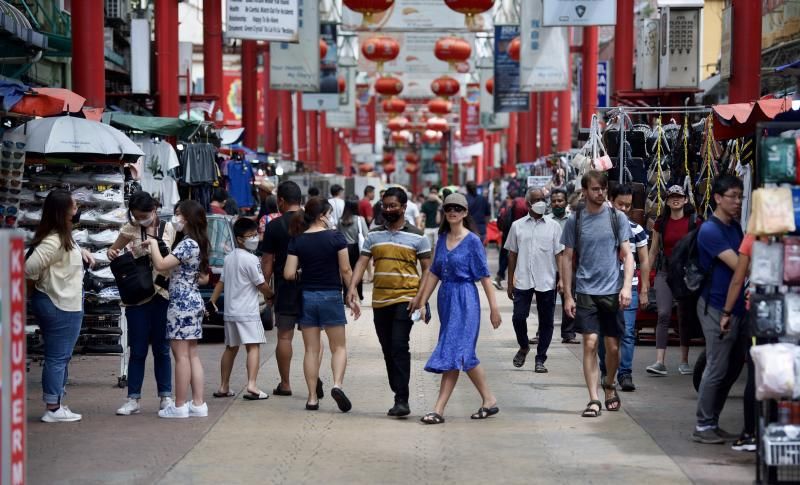
HUMAN beings have been quarrelling since time immemorial, initially limited to those they meet face to face, and later through other forms of communication such as in writing, news reports through print and electronic media, and videos uploaded over the internet, mainly social media.
Most squabbles were over trivial matters, starting from among family members, relatives, friends, neighbours, coworkers, customers and suppliers to strangers that cross paths or anyone using the internet to communicate or comment freely, with many anonymously.
Over time, most arguments will abate and be forgotten, but some could be resurrected or escalated with others joining in. They become dangerous when raw emotions ripple across large communities leading to tensions and conflicts, causing disharmony.
Quarrels usually start when one person feels strongly that he or she is in the right and therefore the other person must be in the wrong. After a heated argument and back to their senses, they would realise it was just a petty matter and move on with their lives.
But not for selfish politicians. They cash in on every opportunity to condemn others to gain popularity and power among their supporters, and none can be more divisive and effective than racial and religious issues. If not, they would create imaginary threats and enemies.
The latest is on signboards that are not in compliance with Kuala Lumpur City Hall’s by-laws.
Once enacted and gazetted, any law, rule or regulation must be enforced. But if enforcement officers have been closing their eyes to transgressions, enforcement should not be carried out suddenly.

If enforcement were to be carried out overnight on all businesses that have violated any law, rule or regulation, our country’s economy would grind to an immediate halt.
For example, there are currently 6,690 unlicensed factories in Selangor alone, despite years of efforts to license them.
Wisely, the Selangor government is aiming to license at least 80% of these factories within the next three years.
If it had chosen to shut them down, then billions of ringgit would have gone down the drain and along with it, thousands of jobs and the livelihood of even more affected.
Similarly, if enforcement of signboards in the city had been lacking, say over the past two years, then businesses should be given a two-year grace period to comply and not tear them down at short notice. Such highhandedness had left a bitter taste in the mouth for many.
Oblivious to many Malaysians, the signboard issue is closely watched by many foreigners in and out of our country. It also reflects how welcoming Malaysians are to foreigners, and will affect not only tourists visiting Malaysia for holidays but also to invest, do business, or study.
For example, Kuala Lumpur is ranked eighth out of 49 major cities by the Expat Ranking 2023 and there is a total of 120,183 expats in the whole country, contributing an astounding RM75 bil annually, which is equivalent to 4.8% of our total Gross Domestic Product (GDP).
The Inland Revenue Board also collects RM100 mil in income tax from these expatriates. About 64% of them are from five countries. They are from China (27,460), India (23,131), the Philippines (9,303), Japan (8,739), and Indonesia (8,333).
Over the past decades, Malaysia attracted a lot of foreign investments and tourists because we were naturally friendly to everyone.
But if we were to allow hostility against certain communities to be spilled across our borders by loudmouthed politicians, the consequence could be dire.
This is especially true for tourism, and hand in hand, foreign investments. If identity politics are not reined in, we will not be able to increase tourist arrivals as targeted. In the decade from 2010 to 2019, tourist arrivals have plateaued, averaging 25.8 million a year.
Similar results are likely from 2024 to Visit Malaysia Year 2026 if we continue to show hostility through reckless words, actions, and behaviours. We could emulate the openness and success of the United Arab Emirates, which attracted 44 million foreign tourists in 2023.
We should also be mindful that more than half of all foreign visitors to Malaysia have Chinese roots and they are mainly from Southeast Asian countries such as Singapore, Indonesia, Thailand, Vietnam, and the Philippines.

The Chinese diaspora has one thing in common – they identify themselves by nationality and are loyal to the country they choose to call home, and for generations have contributed more than their fair share to their nation’s economy.
In Malaysia, the sector that employs the largest number of workers is tourism. In 2019, it was 3.6 million, or 23.6% of the 15.1 million of the total workforce. The gross value added of tourism industries was RM240.2 bil or 15.9% of the GDP.
Any sitting minister for tourism, arts and culture will have to do his utmost to increase or at least maintain tourism revenue for the good of our country and rakyat. As such, the UMNO veteran’s club secretary calling for the minister to resign was uncalled for.
People will continue to argue based on right or wrong until doomsday. While it is good to be right, it is better to be effective. If we choose to be kinder, we will progress and keep pace with rapid developments in Thailand, Vietnam, and Indonesia.
On the other hand, if we are too preoccupied with identity politics, which is divisive, we will regress and join the likes of Myanmar, which has been engaged in civil strife and wars since its independence in 1948.
But thankfully, Malaysians are by nature peace-loving and friendly to all, be they locals or foreigners. But we should not allow selfish politicians to identify and divide us by always championing their communities and condemning others.
Globally, those overly nationalistic have caused great harm to their countries by being overzealous and causing destruction. On the other hand, true patriots place the nation’s interest above all else and contribute to the economy or society.
YS Chan is master trainer for Mesra Malaysia and Travel and Tours Enhancement Course and an Asean Tourism Master Trainer. He is also a tourism and transport business consultant.
The views expressed are solely of the author and do not necessarily reflect those of MMKtT
- Focus Malaysia.
No comments:
Post a Comment
Note: Only a member of this blog may post a comment.